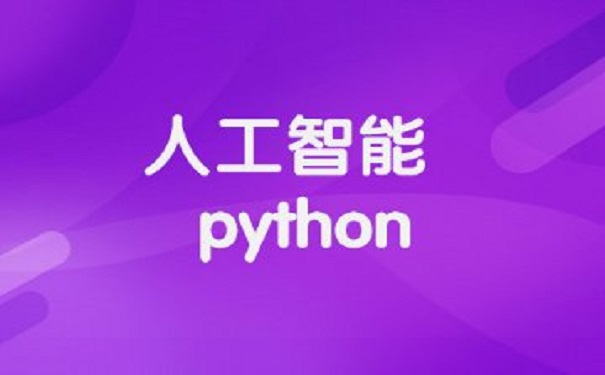Python是一门非常流行的开发语言了,python现在会这么的收欢迎不止是因为人工智能的带动,有很大的一部分是因为它是比较简单易学的,但是在使用python的时候有很多的字符的处理技巧你知道吗?这些处理技巧可以让你的工作更加的便捷。

一. 空格剥离
空格剥离是字符串处理的一种基本操作,可以使用lstrip()方法(左)剥离前导空格,使用rstrip()(右)方法对尾随空格进行剥离,以及使用strip()剥离前导和尾随空格。
s = This is a sentence with whitespace. nprint(Strip leading
whitespace: {}.format(s.lstrip()))print(Strip trailing whitespace:
{}.format(s.rstrip()))print(Strip all whitespace: {}.format(s.strip()))
Strip leading whitespace: This is a sentence with whitespace.Strip trailing
whitespace: This is a sentence with whitespace.Strip all whitespace: This is a
sentence with whitespace.
对剥离除空格以外的字符感兴趣吗?同样的方法也很有用,可以通过传递想要剥离的字符来剥离字符。
s = This is a sentence with unwanted characters.AAAAAAAAprint(Strip
unwanted characters: {}.format(s.rstrip(A)))
Strip unwanted characters: This is a sentence with unwanted characters.
必要时不要忘记检查字符串 format()文档。
format()文档:https://docs.python.org/3/library/stdtypes.html#str.format
二. 字符串拆分
利用Python中的 split() 方法可以轻易将字符串拆分成较小的子字符串列表。
split() 方法:https://docs.python.org/3/library/stdtypes.html#str.split
s = KDnuggets is a fantastic resourceprint(s.split())
[KDnuggets, is, a, fantastic, resource]
默认情况下,split()根据空格进行拆分,但同样也可以将其他字符序列传递给split()进行拆分。
s = these,words,are,separated,by,commaprint(, separated split ->
{}.format(s.split(,)))s = abacbdebfgbhhgbabddbaprint(b separated split
-> {}.format(s.split(b)))
, separated split -> [these, words, are, separated, by,
comma]b separated split -> [a, ac, de, fg, hhg, a, dd,
a]
3. 将列表元素合成字符串
需要实现上述操作的一个逆向操作?没问题,利用Python中的join()方法便可将列表中的元素合成一个字符串。
join()方法:https://docs.python.org/3/library/stdtypes.html#str.join
s = [KDnuggets, is, a, fantastic, resource]print( .join(s))
KDnuggets is a fantastic resource
事实果真如此!如果想将列表元素用空格以外的东西连接起来?这可能有点陌生,但也很容易实现。
s = [Eleven, Mike, Dustin, Lucas, Will]print( and .join(s))
Eleven and Mike and Dustin and Lucas and Will
4. 字符串反转
Python没有内置的字符串反转方法。但是,可以先将字符串看做是字符的列表,再利用反转列表元素的方式进行反转。
5. 大小写转换
利用upper(), lower(),和swapcase()方法可以进行大小写之间的转换。
upper()方法:https://docs.python.org/3/library/stdtypes.html#str.upperlower()方法:https://docs.python.org/3/library/stdtypes.html#str.lowerswapcase()方法:https://docs.python.org/3/library/stdtypes.html#str.swapcase
s = KDnuggetsprint(KDnuggets as uppercase:
{}.format(s.upper()))print(KDnuggets as lowercase:
{}.format(s.lower()))print(KDnuggets as swapped case:
{}.format(s.swapcase()))
KDnuggets as uppercase: KDNUGGETSKDnuggets as lowercase:
kdnuggetsKDnuggets as swapped case: kdNUGGETS
6. 检查是否有字符串成员
在Python中检查字符串成员的简单方法是使用in运算符,语法与自然语言非常类似。
s1 = perpendiculars2 = pens3 = pepprint(pen in perpendicular
-> {}.format(s2 in s1))print(pep in perpendicular ->
{}.format(s3 in s1))
pen in perpendicular -> Truepep in perpendicular -> False
如果对找到字符串中子字符串的位置更感兴趣(而不是简单地检查是否包含子字符串),则利用find()方法可能更为有效。
s = Does this string contain a substring?print(string location ->
{}.format(s.find(string)))print(spring location ->
{}.format(s.find(spring)))
string location -> 10spring location -> -1
七、子字符串替换
找到子字符串之后,如果想替换这一子字符串,该怎么办?Python 中的replace()字符串方法将解决这一问题。
replace()字符串方法:https://docs.python.org/3/library/stdtypes.html#str.replace
s1 = The theory of data science is of the utmost importance.s2 =
practiceprint(The new sentence: {}.format(s1.replace(theory, s2)))
The new sentence: The practice of data science is of the utmost
importance.
如果同一个子字符串出现多次的话,利用计数参数这一选项,可以指定要进行连续替换的次数。
八、 组合多个列表的输出
如何以某种元素的方式将多个字符串列表组合在一起?利用zip()函数便没问题。
zip()函数:https://docs.python.org/3/library/functions.html#zip
countries = [USA, Canada, UK, Australia]cities = [Washington,
Ottawa, London, Canberra]for x, y in zip(countries, cities): print(The
capital of {} is {}..format(x, y))
The capital of USA is Washington.The capital of Canada is Ottawa.The
capital of UK is London.The capital of Australia is Canberra.
九、同字母异序词检查
想检查一对字符串中,其中一个字符串是否是另一个字符串的同字母异序词?从算法上来讲,需要做的是对每个字符串中每个字母的出现次数进行计数,再检查二者计数值是否相等,直接使用collections模块的Counter类便可实现。
collections模块的Counter类:https://docs.python.org/3/library/collections.html#collections.Counter
from collections import Counterdef is_anagram(s1, s2): return Counter(s1)
== Counter(s2)s1 = listens2 = silents3 = runners4 =
neuronprint(listen is an anagram of silent ->
{}.format(is_anagram(s1, s2)))print(runner is an anagram of neuron
-> {}.format(is_anagram(s3, s4)))
listen an anagram of silent -> Truerunner an anagram of neuron
-> False
十、回文检查
如果想检查给定的单词是否是回文,怎么办?从算法上看,需要创建一个单词的反转,然后利用 ==
运算符来检查这2个字符串(原始字符串和反向字符串)是否相等。
def is_palindrome(s): reverse = s[::-1] if (s == reverse): return True
return Falses1 = racecars2 = hippopotamusprint(racecar a palindrome
-> {}.format(is_palindrome(s1)))print(hippopotamus a palindrome ->
{}.format(is_palindrome(s2)))
racecar is a palindrome -> Truehippopotamus is a palindrome ->
False
虽然掌握这些字符串处理“技巧”之后,并不意味着你已经成为了文本分析或自然语言处理专家,但这些技巧可能会激发出深入探究自然语言处理领域的兴趣,并掌握终成为专家所必备的技能。
Python中的字符处理技巧你都了解吗?如果说想要学习python的话那么就来我们达内科技的python培训班来学习吧,我们达内科技欢迎每位想要学习的学员来我们公司进行实地考察,也可以点击我们文章下面的获取试听资格按钮来获取我们的python课程免费试听资格,在试听中可以更加清楚的了解我们达内科技。




